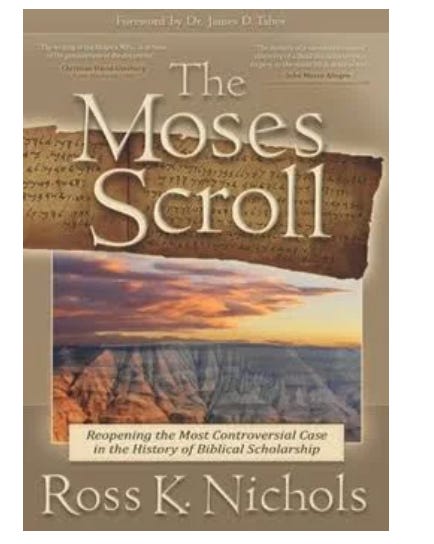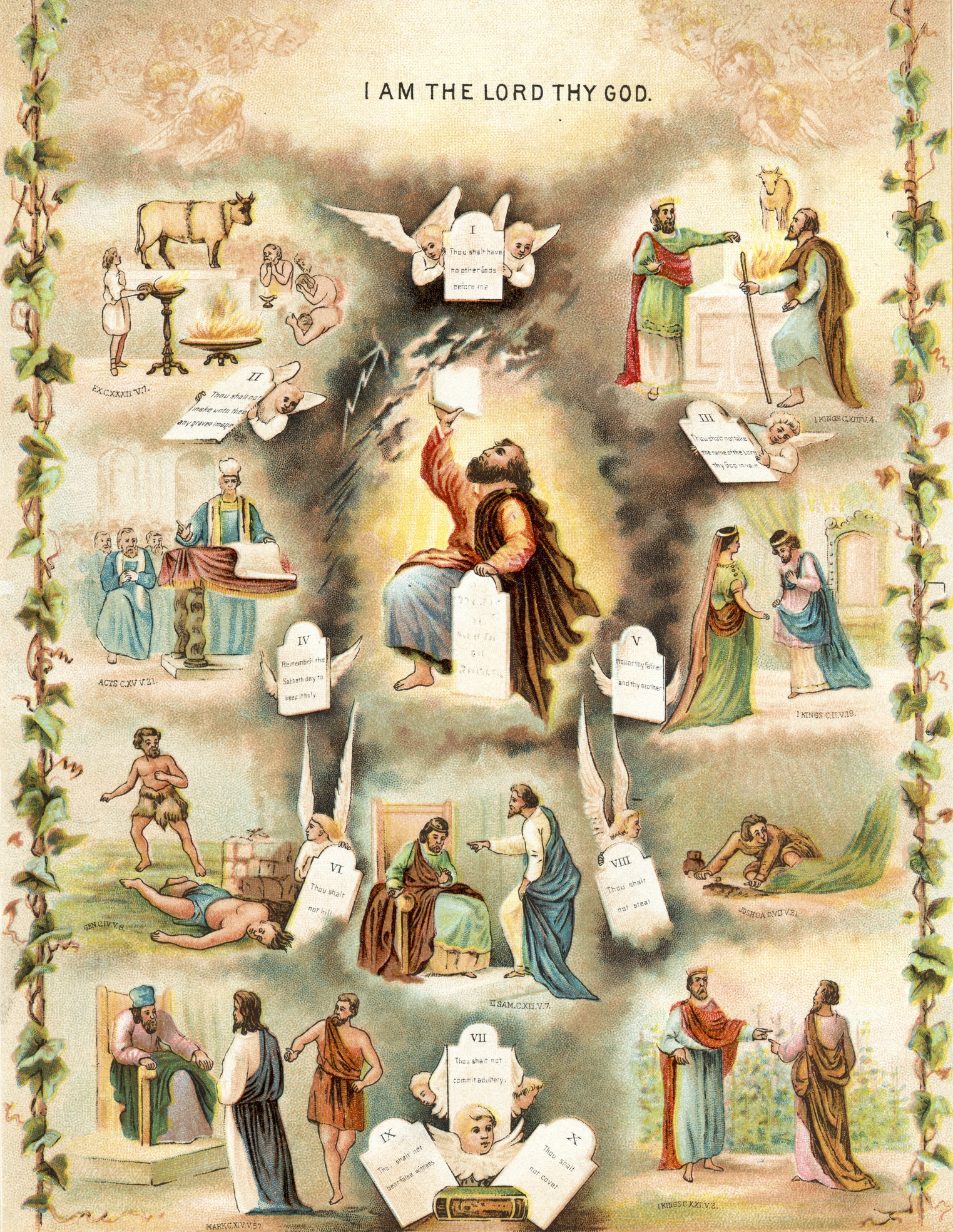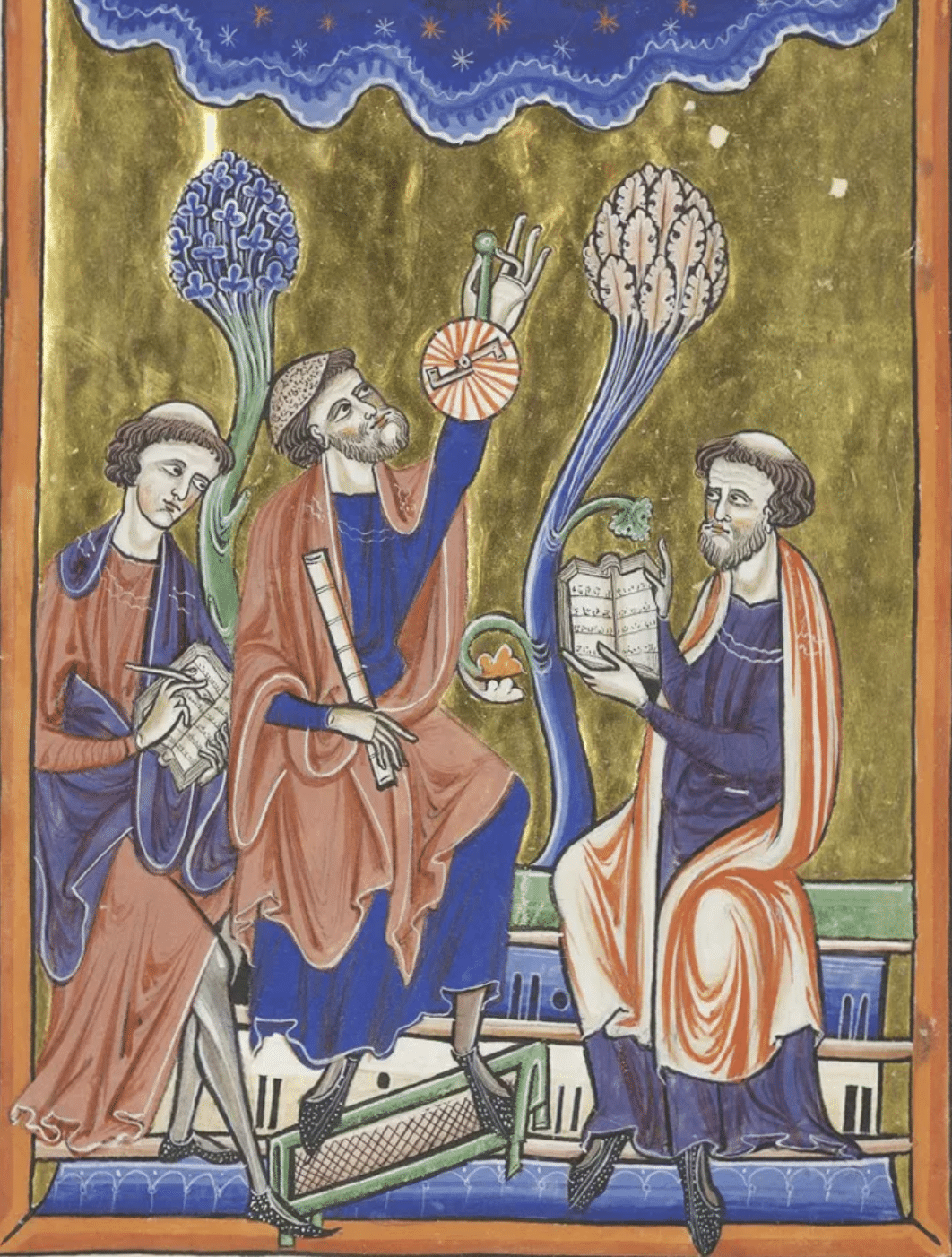The “Moses Scroll” is a fascinating manuscript inscribed in Paleo-Hebrew that expands on blessings and curses tied to the Ten Commandments
Not too long ago I reported on the monumental archaeological find on Mt. Ebal in Israel (the Mount of Cursings) a small curse tablet, a folded lead object, roughly 2×2 cm, reportedly discovered in December 2019 by a team led by archaeologist Scott Stripling.
Small world! The archaeological specialist who actually spotted the tablet during the wet sifting process was a childhood friend of my husband.
The artifact sparked intense debate due to its claimed significance as the oldest known Hebrew inscription, potentially dating to 1400–1200 BC. If authentic, it could predate other known Hebrew texts.
The translated wording inside the curse tablet, as proposed by the research team led by Stripling, is: “Cursed, cursed, cursed – cursed by the God YHW. You will die cursed. Cursed you will surely die. Cursed by YHW – cursed, cursed, cursed.”
The Bible does indeed set down principles of blessings and curses as we heard recently in a fascinating podcast featuring author Ross K. Nichols. He has reopened a controversial case of biblical scholarship known as “The Moses Scroll,” or the “Shapira Scroll.”

Ross has written a book called The Moses Scroll, explaining that the Ten Commandments, or the “Ten Words,” in the Shapira manuscript are accompanied by blessings for obedience and curses for disobedience. It’s a feature that aligns with the covenantal structure in Deuteronomy 27–28 but is uniquely detailed for each commandment in the so-called Shapira text.
Ross is on the trail of the scroll which is an unsolved mystery. It’s even a tragedy. Moses Shapira was an antiquities dealer in Jerusalem. He presented the scroll as an ancient biblical artifact in 1883 but was denounced by many scholars as a fraudster, leading to his disgrace and eventual suicide in 1884.
The strips were purportedly found in a cave east of the Dead Sea in biblical Moab and were claimed to contain a version of the Book of Deuteronomy with significant variations, including a unique presentation of the Ten Commandments (referred to as the “Ten Words” in rabbinic tradition).
Recent studies, notably by Nichols and Idan Dershowitz, have reopened the debate about its authenticity, suggesting it may be a genuine pre-exilic text, potentially predating the canonical Deuteronomy. Nichols and Dershowitz, argue it may possibly predate the Dead Sea Scrolls, based on its script and content.
The so-called Moses Scroll is distinct from the Masoretic text of Deuteronomy, where blessings and curses are more general and not explicitly tied to each commandment.
Below, I provide a detailed account of the blessings and curses associated with each of the Ten Words as they appear in the Shapira manuscript, based on scholarly reconstructions, particularly from Ross K. Nichols’ work freely available on Academia.edu. Note that the exact text of the manuscript is only partially preserved through 19th-century transcriptions, as the original strips have been lost, and some elements are reconstructed.
The Ten Words and Their Associated Blessings and Curses
The Shapira manuscript’s version of the Ten Words differs in wording, order, and presentation from the canonical texts found in Exodus 20 and Deuteronomy 5. Notably, it includes what some sources describe as an “extra” commandment (“You shall not hate your brother in your heart”), although scholars like Nichols argue this may be incorporated in the tenth..
The blessings and curses are structured to emphasize the covenantal relationship, with specific rewards for adherence and punishments for violation. The following is a synthesized list based on Nichols’ chart and related sources, with reconstructed text indicated where applicable:
- First Word: “I am Elohim your Elohim, who brought you out of the land of Egypt, out of the house of bondage. You shall have no other gods before me.”
- Blessing: “Blessed are you when you walk in my ways, for I am Elohim your Elohim. You shall dwell securely in the land, and your days shall be long.”
- Curse: “Cursed are you if you turn to other gods, for I am a jealous Elohim. Your land shall be desolate, and you shall perish quickly from the good land.”
- Notes: This commandment emphasizes monotheistic loyalty. The blessing promises security and longevity, while the curse threatens exile and desolation, echoing Deuteronomy 28’s broader curses.
- Second Word: “You shall not make for yourself a graven image, or any likeness of anything that is in heaven above, or that is in the earth beneath, or that is in the water under the earth.”
- Blessing: “Blessed are you when you worship me alone, for I show steadfast love to thousands who love me. Your offspring shall be numerous and prosper.”
- Curse: “Cursed are you if you bow down to idols, for I visit the iniquity of the fathers upon the children. Your offspring shall be cut off.”
- Notes: The prohibition on idolatry is paired with a blessing of fertility and prosperity, contrasted with a curse of generational punishment, a theme consistent with Exodus 20:5–6.
- Third Word: “You shall not take the name of Elohim your Elohim in vain.”
- Blessing: “Blessed are you when you honor my name, for I am holy. Your words shall be trusted, and your life shall be upright.”
- Curse: “Cursed are you if you profane my name, for I will not hold him guiltless. Your words shall bring shame, and your life shall be troubled.”
- Notes: This focuses on the sanctity of God’s name. The blessing ensures trustworthiness, while the curse brings social and personal disgrace.
- Fourth Word: “Remember the Sabbath day, to keep it holy.”
- Blessing: “Blessed are you when you rest on my Sabbath, for I sanctify it. You shall find rest, and your labor shall be fruitful.”
- Curse: “Cursed are you if you profane the Sabbath, for it is my sign. Your labor shall be in vain, and you shall find no rest.”
- Notes: The Sabbath commandment includes a blessing of rest and productivity, with a curse of fruitless toil, reflecting the covenantal sign of the Sabbath (Exodus 31:13).
- Fifth Word: “Honor your father and your mother.”
- Blessing: “Blessed are you when you honor your parents, for I command it. Your days shall be long, and it shall go well with you in the land.”
- Curse: “Cursed are you if you dishonor your parents, for I see it. Your days shall be shortened, and you shall be cut off from the land.”
- Notes: This mirrors the canonical promise of long life (Exodus 20:12), with the curse emphasizing premature death or exile.
- Sixth Word: “You shall not murder.”
- Blessing: “Blessed are you when you preserve life, for I am the giver of life. You shall live securely, and your community shall be at peace.”
- Curse: “Cursed are you if you shed blood, for blood cries to me. Your life shall be taken, and your community shall be in turmoil.”
- Notes: The blessing promotes communal harmony, while the curse invokes retributive justice, aligning with Genesis 9:6.
- Seventh Word: “You shall not commit adultery.”
- Blessing: “Blessed are you when you keep your covenant pure, for I am faithful. Your household shall be stable, and your children shall be blessed.”
- Curse: “Cursed are you if you defile your covenant, for I judge it. Your household shall be broken, and your children shall suffer.”
- Notes: This emphasizes marital fidelity, with blessings of family stability and curses of domestic disruption.
- Eighth Word: “You shall not steal.”
- Blessing: “Blessed are you when you respect your neighbor’s property, for I provide. Your needs shall be met, and your wealth shall increase.”
- Curse: “Cursed are you if you take what is not yours, for I see it. Your wealth shall diminish, and you shall live in want.”
- Notes: The blessing promises provision, while the curse brings poverty, reflecting economic consequences.
- Ninth Word: “You shall not bear false witness against your neighbor.”
- Blessing: “Blessed are you when you speak truth, for I am truth. Your words shall build trust, and your community shall be strong.”
- Curse: “Cursed are you if you bear false witness, for I abhor lies. Your words shall bring division, and your community shall be weak.”
- Notes: Truthfulness strengthens community, while falsehood undermines it, aligning with the social focus of this commandment.
- Tenth Word: “You shall not desire your neighbor’s woman, his maidservant, or anything that is his. / You shall not hate your brother in your heart. I am Elohim your Elohim.”
- Blessing: “Blessed are you when you love your brother and covet not, for I am your provider. Your heart shall be at peace, and you shall have abundance.”
- Curse: “Cursed are you if you covet or hate your brother, for I know the heart. Your heart shall be troubled, and you shall live in lack.”
- Notes: This commandment combines prohibitions against coveting and hatred, with the latter emphasized as a distinct command in some reports (e.g., The Jewish Chronicle, 1883). Nichols argues it may be a single commandment, with “not hating” as an interpretive expansion, possibly linked to Leviticus 19:18 (“love your neighbor”). The blessing promises inner peace and provision, while the curse brings emotional and material distress.
Additional Notes and Context
- Source Information: The blessings and curses are derived from Nichols’ chart in his Academia.edu publication, which is based on his transcriptions of the Shapira manuscript (Chart of the Ten Words with Associated Blessings and Curses – Shapira’s MSS, 2021). The manuscript’s text is reconstructed from 19th-century transcriptions by Shapira, Hermann Guthe, and others, as the original strips are lost. [The search for them is continuing, accord to the podcast that we listened to.]
- Authenticity Debate: The manuscript’s authenticity remains contested. Idan Dershowitz argues it is a proto-biblical text (The Valediction of Moses), potentially pre-exilic, while critics such as Matthieu Richelle cite linguistic and orthographic features suggesting a 19th-century forgery (Semitica 63, 2021). The presence of blessings and curses for each commandment is unique and supports Dershowitz’s view that the text (termed “V”) predates Deuteronomy’s redaction, which omits such specific blessings.
- Ceremonial Context: The blessings and curses align with the covenant renewal ceremony described in Deuteronomy 11, 27, and Joshua 8, where tribes recite blessings on Mount Gerizim and curses on Mount Ebal. I found it very interesting that the Shapira manuscript’s detailed blessings for each commandment are absent in Deuteronomy 27, which lists only curses, suggesting the manuscript preserves an earlier tradition.
- Theological Implications: The explicit blessings and curses for each commandment suggest a direct covenantal relationship between God and the people, potentially bypassing priestly mediation. This has been noted as a possible reason for 19th-century skepticism against Shapira, as it aligns with theological shifts (e.g., Jesus’ emphasis on loving one’s neighbor) that some scholars, like those cited in saludovencedores.com, saw as a motive for forgery.
Limitations and Caveats
- The original manuscript has been lost, and reconstructions rely on transcriptions from 1883, which may contain errors or biases. Nichols’ chart is the most detailed source available, but some readings are uncertain, as indicated by brackets and footnotes.
- The exact wording of blessings and curses may vary slightly in different transcriptions (e.g., Nichols vs. Dershowitz).
- The authenticity debate affects interpretation. If the manuscript is a forgery, the blessings and curses may reflect 19th-century theological agendas rather than ancient tradition. However, to my mind the blessings and curses additions seem consistent with the entire tenor of Scripture.
To contact Christine Darg, click her website www.JerusalemChannel.tv here







Leave A Comment